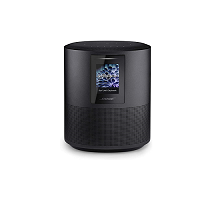Smart Speakers Must Have Features
- Voice assistants: The first thing to consider when buying a smart speaker is which voice assistant it uses. There are three main voice assistants to choose from: Amazon’s Alexa, Google Assistant, and Apple’s Siri. Each assistant has its own strengths and weaknesses, so it’s important to consider what you want to use your speaker for before deciding which one to choose.
Alexa is known for being the most versatile of the three, with support for the most third-party services and integrations. It can also be used to control smart home devices from a variety of brands, making it a good choice if you have a lot of different devices you want to control with your speaker.
Google Assistant, on the other hand, is known for being the most intelligent of the three, with advanced natural language processing that allows for more complex commands and interactions. It also integrates seamlessly with Google’s ecosystem, so if you use Google services like Gmail, Google Calendar, and Google Maps, Google Assistant might be the best choice for you.
Finally, Siri is the only option for Apple users, as it is integrated into all of Apple’s devices. If you have an iPhone, iPad, or Mac, Siri might be the most convenient option for you, as it allows you to control your smart speaker directly from your Apple devices.
- Sound quality: Another important factor to consider when buying a smart speaker is sound quality. While all smart speakers come with built-in speakers, the quality can vary significantly between models. If you’re looking for a speaker primarily for music playback, you’ll want to choose one with high-quality audio.
One thing to consider is the number of drivers in the speaker. Drivers are the individual components that produce sound, and the more drivers a speaker has, the better the sound quality will be. Some speakers come with multiple drivers for different frequencies, while others have a single driver that handles all frequencies.
Another factor to consider is the size of the speaker. Generally, larger speakers will produce better sound quality than smaller ones, as they have more space for drivers and can produce more powerful bass.
Finally, consider the shape and design of the speaker. Some speakers are designed specifically for 360-degree sound, which means they project sound in all directions. Others are designed for directional sound, which is better for more focused listening. Consider where you’ll be placing your speaker and what kind of sound projection you need.
- Compatibility with other devices: One of the benefits of smart speakers is their ability to integrate with other smart devices in your home. Before buying a smart speaker, it’s important to consider which smart home devices you already have or plan to buy in the future.
Most smart speakers use either Zigbee or Z-Wave protocols to communicate with other smart devices. Zigbee is more commonly used and is supported by a wider range of devices. Z-Wave is less common but is known for being more reliable and secure.
In addition to these protocols, many smart speakers also have built-in hubs for specific ecosystems, such as Amazon’s Alexa or Google Assistant. If you’re already invested in a specific ecosystem, it might be more convenient to choose a speaker that is designed to work with that ecosystem.
- Multi-room audio: Another feature to consider when buying a smart speaker is multi-room audio. This allows you to connect multiple speakers together and play the same music or audio across all of them at the same time.
If you want to use your smart speaker for whole-home audio, look for speakers that support multi-room audio. Some speakers come with built-in multi-room audio functionality, while others require additional hardware or software to enable this feature.
- Design and aesthetics: While the functionality of a smart speaker is important, the design and aesthetics are also worth considering. Smart speakers come in a variety of sizes, shapes, and colors, so you should choose one that fits your personal style and home decor.
Consider the size of the speaker and where you plan to place it. If you have limited space, you may want to choose a smaller speaker that can be tucked away on a shelf or countertop. If you’re looking for a speaker to make a statement in your home, consider a larger, more prominent model.
- Price: The price of a smart speaker can vary significantly depending on the brand, features, and quality of the speaker. Before making a purchase, it’s important to set a budget and consider what features you need most.
Entry-level smart speakers can cost as little as $20, while high-end models can cost several hundred dollars. Consider the features you need most and choose a speaker that fits within your budget.
- Brand and support: Finally, when buying a smart speaker, it’s important to consider the brand and the level of support they offer. Some brands, such as Amazon and Google, have a large ecosystem of devices and services that work seamlessly with their smart speakers. Other brands may offer more limited support or have a smaller selection of compatible devices.
In addition to the brand, consider the level of support offered by the manufacturer. Look for a brand that offers good customer service and a warranty or guarantee on their products. This will give you peace of mind knowing that you can rely on the manufacturer if something goes wrong with your speaker.
Conclusion
Buying a smart speaker can be overwhelming, with so many options to choose from. By considering the factors outlined in this article, you can make an informed decision and choose a smart speaker that fits your needs and budget. Whether you’re looking for a speaker for music playback, smart home control, or whole-home audio, there’s a smart speaker out there that will fit your needs.
FAQs (Frequently Asked Questions)
1. What are the top smart speaker brands?
The leading smart speaker brands include Amazon Echo, Apple HomePod, Google Nest, and Sonos, each offering unique features and voice assistant capabilities.
2. How do I choose the right voice assistant?
Select a smart speaker based on the voice assistant you prefer: Alexa (Amazon), Siri (Apple), or Google Assistant. Consider ecosystem compatibility with your existing smart home devices.
3. What is the average price range for smart speakers?
Smart speakers range from budget-friendly options around $50 (like the Amazon Echo Dot) to premium models over $300, with most quality speakers falling in the $100-$200 price range.
4. What features should I look for in a smart speaker?
Key features include sound quality, voice assistant capabilities, smart home integration, room-sensing audio, temperature sensors, and multi-room audio support.
5. Are there budget-friendly smart speaker options?
The Amazon Echo Dot (5th Gen) and Google Nest Mini are excellent budget options, offering good sound quality and basic smart home functionality for under $50.
6. Which smart speaker offers the best sound quality?
Top performers include the Sonos Era 100 and 300, Apple HomePod (2nd Generation), and Amazon Echo Studio, known for their exceptional audio performance.
7. Can smart speakers work with multiple voice assistants?
Some advanced models like the JBL Authentics 500 support multiple voice assistants simultaneously, providing more flexibility.
8. What additional smart home capabilities do these speakers offer?
Many modern smart speakers include features like temperature sensors, Matter support, smart home hub capabilities, and the ability to create automated routines.
9. Are portable smart speakers available?
Yes, brands like Sonos Roam and Sonos Move 2 offer portable smart speakers with impressive battery life and sound quality for on-the-go use.
10. What should I consider before purchasing a smart speaker?
Consider your budget, preferred voice assistant, intended use (music, smart home control), room size, and compatibility with existing smart home devices.

 The smart speaker has become an increasingly popular gadget in recent years, with a variety of options available from different brands. These speakers come with various features, such as voice assistants, multi-room audio, and compatibility with smart home devices. In this article, we will guide you through the process of buying a smart speaker, covering everything from features to consider to compatibility with different ecosystems.
The smart speaker has become an increasingly popular gadget in recent years, with a variety of options available from different brands. These speakers come with various features, such as voice assistants, multi-room audio, and compatibility with smart home devices. In this article, we will guide you through the process of buying a smart speaker, covering everything from features to consider to compatibility with different ecosystems.




































